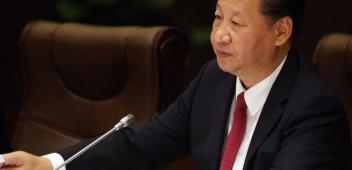Chinese bank an asset on balance
Chinese bank an asset on balance
Linda Jakobson
The Australian
17 March 2015

Executive Summary
Australia has a clear-cut choice — to be in or out as a founding member of the China-led Asian Infrastructure Investment Bank. The arguments for and against are complex, but Australian interests clearly favour membership now.
Britain’s surprise announcement last week that it would join the AIIB has only intensified scrutiny of Tony Abbott’s wait-and-see approach towards bank membership, despite the views of Joe Hockey and Trade Minister Andrew Robb that Australia should join.
The Prime Minister’s stance that Canberra wants a change in the bank’s governance rules before Australia joins has had the support of Foreign Minister Julie Bishop and is in lock-step with Washington’s stance.
Concerns about how the AIIB will be governed are justified. In public, Abbott and Bishop have emphasised the need to ensure transparency and accountability. Beijing is not known for embracing either of these principles.
Moreover, every major international institution runs the risk of being — to quote former Howard government minister Peter Reith — “run by the staff for the staff, with very generous remuneration, minimal accountability to taxpayers and a determination to build its own empire”.
In private, many Canberra officials also note an even more pressing concern: Beijing could use its position in the bank to coerce governments in need of infrastructure funding to support China’s policies in the region.
With these concerns in mind, Canberra has a crucial choice to make about AIIB membership and that decision should be reached independently, as Bishop has said many times.
There are several compelling reasons for Australia to decide independently to join.
The most obvious one is that it is in Australia’s national interest to participate in a major new development bank in its region, one that aims to fund sorely needed infrastructure projects across Asia.
Second, Australia consistently has called on China to take on more regional responsibility. China should be given the chance to prove itself.
Third, the perception of Australia meekly following the US is detrimental to Australia’s standing in the region. The AIIB is not linked to Australia’s security. Why should the US have a say on this issue?
During meetings in Washington in January, I was struck by the criticism from Democrats and Republicans of the way the Obama administration had handled China’s AIIB initiative. One knows something is amiss when a staunch Democrat, known for tough views on US engagement with China, says that this was a prime opportunity for Washington to allow its allies to make independent decisions without American pressure.
The US policy has been “confused and contradictory”, as Thomas Wright of the Brookings Institution notes, and needs to move beyond “obstructionism”. Australia should distance itself from this counter-productive policy.
Fourth, Canberra cannot promote accountability and transparency inside the bank if it remains outside the bank.
Fifth, as an outsider Canberra cannot even try to curb possible attempts by Beijing to use the bank to pressure weaker countries.
Sixth, the threat of leaving the bank will be a stronger deterrent in any standoff over issues of principle with Beijing than the lure of Australia joining sometime in the future.
The deadline for founding members to join is March 31. Australia still has time to make an independent choice.
Linda Jakobson is the founding director of new public policy initiative China Matters (chinamatters.org.au). She is also a visiting professor at the US Studies Centre at the University of Sydney and a non-resident fellow of the Lowy Institute.



